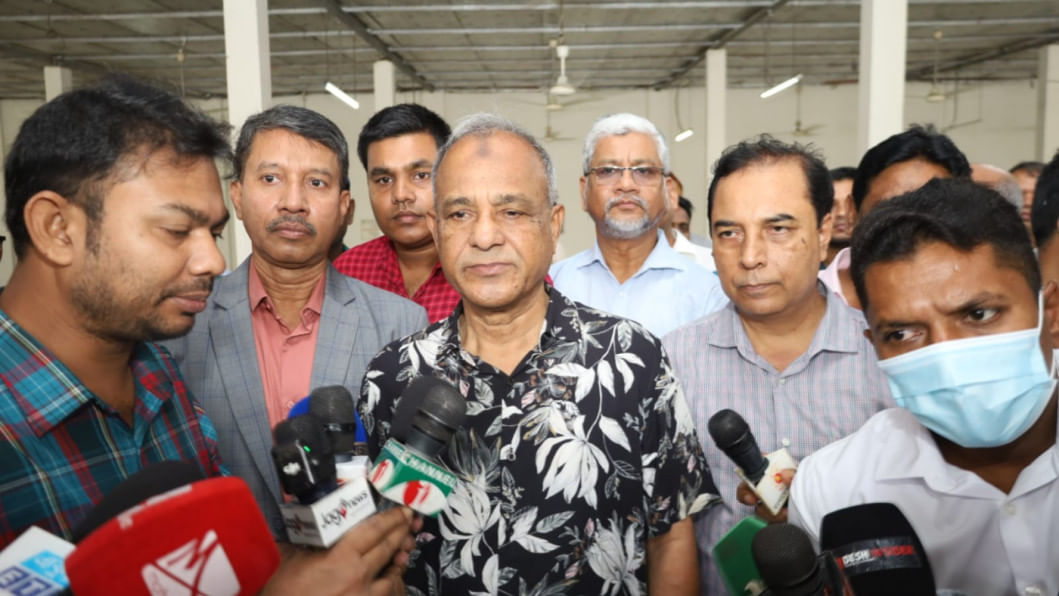Govt to buy potato directly from farmers this year

The government has decided to procure potatoes directly from farmers this year in a bid to ensure fair prices for growers amid a sharp decline in domestic rates due to higher production.
The government will set potato prices at the cold storage level and purchase the tuber directly from farmers, said Agriculture Adviser Lieutenant General (retd) Md Jahangir Alam Chowdhury.
The move was taken to cut out middlemen and ensure more benefits for the growers, he said.
Chowdhury shared the information at a press conference after visiting the Bangladesh Agricultural Development Corporation's (BADC) cold storage, central seed testing laboratory, and vegetable seed processing centre at Gabtoli in Dhaka yesterday.
The BADC, a corporation under the agriculture ministry, works on the production of high-yielding seeds of different crops, preservation and supply enhancement, along with irrigation technology development.
The government is yet to decide how much potato will be procured, Mohammad Zakir Hossain, senior information officer at the agriculture ministry, said at the event.
A meeting will be held soon to finalise the amount, he said.
At the beginning of the season, many farmers were forced to sell their produce at the field level for as low as Tk 11 per kilogramme (kg), far lower than the Department of Agricultural Extension's estimated average production cost of Tk 14.
Moreover, in some northern regions, where cultivation costs run higher, production expenses reached up to Tk 20 per kg, according to DAE data.
Bangladesh produced 1.15 crore tonnes of potatoes, the highest in history, in the last harvesting season, according to estimates by the Bangladesh Bureau of Statistics (BBS).
An expansion of cultivation area and higher yield owing to favourable weather boosted the overall production of the popular vegetable this year, said the BBS.
Farmers grew the tuber on 4.92 lakh hectares in the 2024-25 fiscal year, up 8 percent year-on-year.
At the press meet, the agriculture adviser also discussed Bangladesh's reliance on imports.
The tissue culture of potatoes, pineapples, dates, and various flowers is being carried out at BADC's tissue culture centre, he said.
"We import dates from abroad. If saplings produced through this technology are widely distributed locally, dependence on imports will decrease," he said.
"We have to buy potato seeds at high prices from countries like the Netherlands. If we can produce high-quality potato seeds inside Bangladesh, it will be beneficial for our agriculture."
He added that BADC's tissue culture lab is working towards this goal.
If agricultural research is strengthened, Bangladesh will no longer need to import seed potatoes from abroad, and production costs will decrease further, he said.
About the recent price hikes, the adviser said vegetable fields were damaged due to rain, which has affected the market.
"Once the weather returns to normal, this problem will go away."
In response to a journalist's question about reducing dependence on jute seed imports, Chowdhury said farmers prefer growing other, more profitable crops than jute.
Jute seeds take a long time to grow, during which farmers can harvest paddy two to three times, he said.
And it has not been possible to meet the demand for jute seeds through local production because of land scarcity, the adviser said, hinting at the continuation of jute seed imports.

 For all latest news, follow The Daily Star's Google News channel.
For all latest news, follow The Daily Star's Google News channel. 







Comments